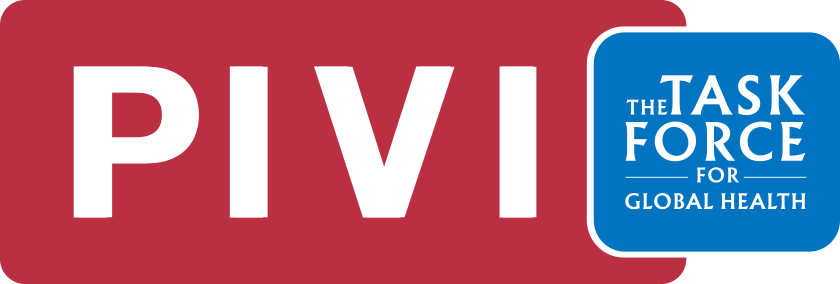The Many Hands Preparing for “Train the Trainer” Vaccinator Training in Kyrgyzstan
Globally, seasonal influenza causes millions of cases of severe illness, and between 250,000 to 500,000 deaths annually. While not perfect, influenza vaccines help prevent severe illness and help save lives. Since its creation, PIVI has facilitated the donation of more than three million doses of seasonal influenza vaccine to nine countries, helping to protect people from the disease. Getting the vaccine to partner countries is vital. Yet it’s only one component of a successful vaccination campaign.
Training healthcare workers and vaccinators is a crucial step that must take place if a campaign is to be successful, as healthcare workers must know how to store and administer vaccine properly. In the countries where PIVI works, we assist with in-country vaccinator trainings to help strengthen health systems. This is especially important when countries will be receiving a different presentation of the vaccine than what they are accustomed to working with. PIVI tries to take country preference into account when shipping vaccines, but sometimes, PIVI-supplied influenza vaccine may come in a different presentation than what the country has prior experience with.
Donated influenza vaccine is often shipped in single-dose prefilled syringes or single-dose vials. Health workers prepare the injection site, administer the vaccine, and watch for any adverse reactions. The vaccine can also be made available in multi-dose vials. Each bottle of multi-dose vaccine contains ten doses, covering up to ten people. Vaccinators may need lessons on how to extract the vaccine from the bottle, tap the syringe to remove any bubbles, and safely repeat the procedure to administer each dose of vaccine to each additional patient.
Epidemiologists and immunologists (vaccinators) in Kyrgyzstan, a country new to PIVI support, will be receiving 105,000 doses in multi-dose influenza vaccine this year from PIVI. Because Kyrgyzstan has not worked with multi-dose influenza vaccine before, they will need to be trained on how to administer the vaccine. The Ministry of Health reached out to PIVI and to the Centers for Disease Control and Prevention (CDC) to support a cascade or “train the trainer” training. The training will familiarize healthcare leaders with best practices regarding the multi-dose vaccine. The World Health Organization Regional Office for Europe (WHO EURO) is funding the training.
Conducting a training like this requires a great deal of preparation and teamwork. It provides a rich opportunity to collaborate for positive outcomes. This training requires up-to-date content with standard medical information on influenza, country-specific and culturally appropriate vaccination information, translators who can translate the material from English to Russian, as well as a Russian-speaking professional who can conduct the training on the ground. PIVI, CDC, World Health Organization (WHO) offices at the country and regional levels, and Kyrgyzstan’s Ministry of Health are all working together to coordinate these efforts. Through collaboration, and contributing the key knowledge and skills that we each have, we are creating a successful training module.
While staff from PIVI, CDC, and the WHO Regional Office for Europe (WHO EURO) compiled PowerPoint slides with standard information on influenza, the Ministry of Health and WHO offices in Kyrgyzstan contributed the relevant cultural and country data, including images of vaccination records and data on influenza disease burden. Staff from WHO EURO will translate the slides from English to Russian. The training will cultivate an in-country knowledge base that will enable staff in healthcare facilities to conduct an influenza vaccination campaign with the multi-dose vaccine later this year. And this knowledge won’t be lost. Once trained in multi-dose vaccines, healthcare workers will have acquired additional skills to support other vaccine needs.
Ultimately, PIVI is about partnerships—working with country policymakers, vaccine manufacturers, suppliers, and healthcare staff on the ground to create stronger health systems in the places where we work. This training in Kyrgyzstan is a great example of team effort. One program, organization, or agency would have a much more difficult time completing everything required to jumpstart an influenza vaccination training or campaign very quickly. When we work together at the local, national, and international levels, we can leverage our resources and accomplish much more than we think we can to protect people from influenza.
In the spirit of partnership, I will close by acknowledging Kaliya Kasymbekova with the WHO country office in Kyrgyzstan. Kaliya has tirelessly translated conference calls and other correspondence and helped to troubleshoot any technical difficulties that have arisen during planning. Thanks to partners like Kaliya, together we are making the world safer from seasonal influenza, influenza pandemics and other infectious disease threats.

